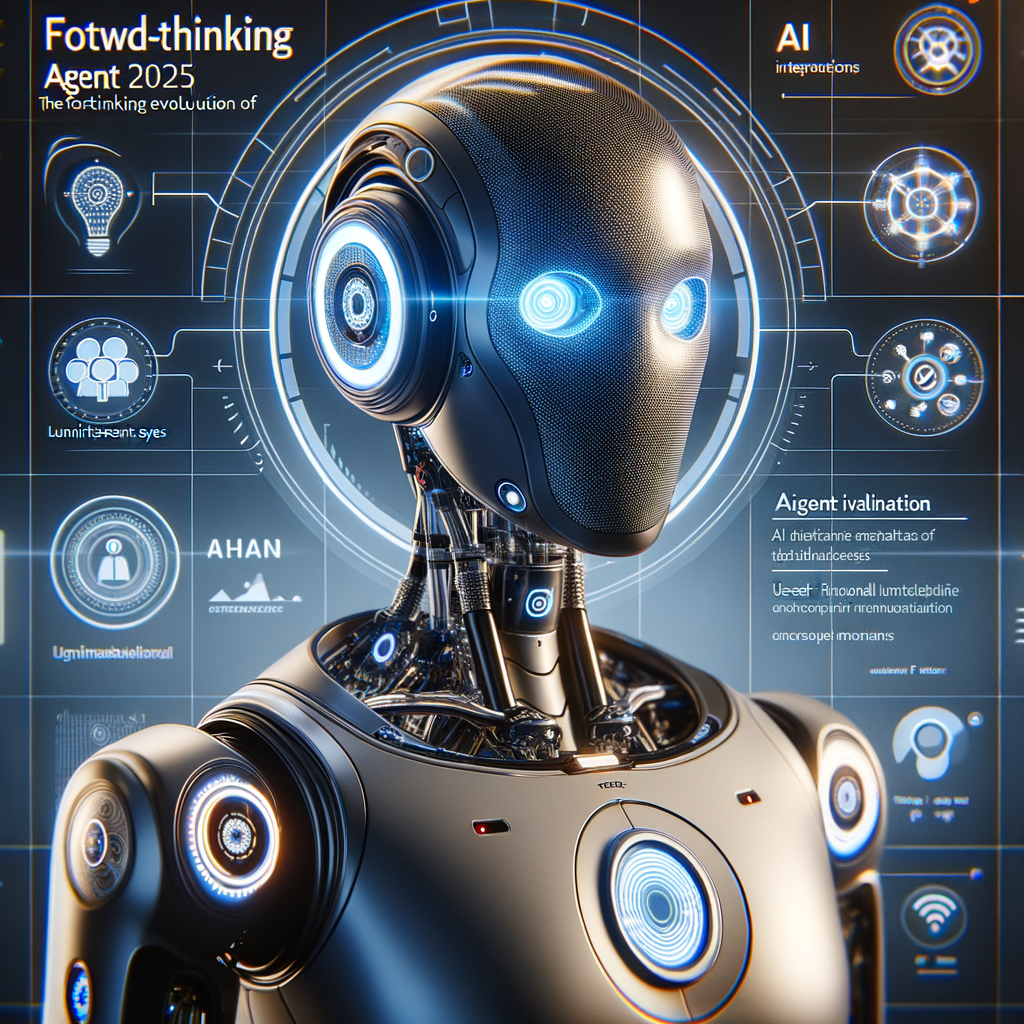“AI Agents and Privacy: Transforming 2025 While Staying Secure”

“`html
The Rise of AI Agents in 2025
2025 is set to be an exciting year for artificial intelligence, specifically AI agents. These advanced tools are designed to dramatically change how we interact with technology, automating repetitive tasks and contributing to better productivity. If 2024 was the year AI chatbots found their footing, 2025 will be the year AI agents dominate both enterprise and personal spaces.
Why AI Agents Are the Next Big Thing
- Task Automation: AI agents are programmed to take over mundane tasks like expense reporting and resolving IT issues, thereby saving time.
- Tech Titans Leading Innovation: Companies like Microsoft, Nvidia, and Google are spearheading this movement with cutting-edge projects such as Google’s Project Mariner and Apple’s enhanced Siri capabilities.
- Enterprise-Centric Focus: The initial focus of AI agents will be on enterprise solutions, gradually trickling into personal use cases as the technology improves.
What’s Happening Right Now?
AI agents are not just beta innovations anymore. Microsoft has reported a 36% increase in IT self-help success rates and a robust 9.4% uptick in revenue per seller through their integration of AI systems. Google’s Project Mariner is actively showing how AI can gather meaningful, real-time data from various open-web sources. Likewise, Apple’s Siri is gearing up to offer travel advice by processing current travel information.
What Does This Mean for Users?
Initially confined to improving workplace efficiency, AI agents will attempt to become all-encompassing assistants in our day-to-day lives. While the shift may take time, it’s exciting to envision an era where everything from booking a flight to troubleshooting a technical issue could be managed seamlessly by an AI agent.
Key Takeaway:
The future lies in embracing these AI-powered assistants, as they are meant to simplify the lives of individuals and businesses alike.
10 Things to Never Share with AI Bots
AI bots have proven to be incredibly useful tools. But with great power comes great responsibility. Users must be vigilant about the type of information they share with these bots to safeguard their privacy and data security.
Why Being Cautious Matters
AI bots collect and store vast amounts of data to process inputs and deliver results. However, in the absence of stringent regulations, these data troves can represent significant privacy risks. In one tragic scenario, an incident involving a Florida teenager highlighted the unpredictable and dangerous outcomes that can occur when sensitive conversations are held with AI platforms.
Avoid Sharing the Following:
- Passwords and login credentials.
- Personal identification numbers like social security numbers.
- Bank and financial information.
- Confidential business data.
- Any explicit or illegal inquiries.
- Opinions that could lead to hate speech or discrimination.
- Intellectual property details.
- Private medical information.
- Location-based sensitive information.
- Unverified or overly personal anecdotes.
Key Tip:
Think of AI bots not as trusted confidants but as data collectors. If you wouldn’t say it publicly, don’t share it with a bot.
Conclusion:
While AI bots are fantastic tools, they should be approached with caution. Always err on the side of protecting your personal and sensitive information to mitigate risks.
Looking Ahead
The evolution of AI agents in 2025 signifies a step toward making our lives more efficient and connected. But as with any technological leap, consumers must tread carefully, especially when privacy and data security are concerned. The future promises incredible advancements, but the responsibility to engage with these tools wisely remains paramount.
“`
